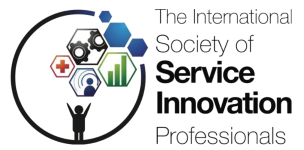HICSS-48 CALL FOR PAPERS
January 5-8, 2015 – Grand Hyatt, Kauai (Monday-Thursday)
Haluk Demirkan – haluk@uw.edu AND Jim Spohrer – spohrer@us.ibm.com
Additional detail may be found on HICSS primary web site: http://www.hicss.hawaii.edu/hicss_48/apahome48.htm
Smart service systems can be characterized by: (1) the types of offerings to their customers and/or citizens, (2) the types of jobs or roles for people within them, and (3) the types of returns they offer investors interested in growth and development, through improved use of technology, talent, or organizational and governance forms, which create (dis)incentives that (re)shape behaviors. There is a need to apply robust research findings in the appropriate management and organizational contexts related to innovation of smart service systems, service innovation, quality, architecture, design and delivery, and the resulting customer satisfaction and business value. In part, because of analytics and cognitive systems, smart service systems adapt to a constantly changing environment to benefit customers and providers.
The goal of this track is to explore the challenges, issues and opportunities related to innovation of smart service systems that enable value co-creation with analytics, cognitive and human systems. We are interested in novel theories, approaches and applications for innovation of smart service systems. Possible topics of applied, field and empirical research include, but are not limited to:
– Theories, approaches and applications for innovation of smart service systems
– Value co-creation processes, metrics and analytics for smart innovation processes
– Methods scale the benefits of new knowledge globally, rapidly, and profitably
– Service-oriented agile IT realization platform for smart service co-creation
– Place of cognitive systems, computing, system engineering, cloud for smart service systems
– Innovation ecosystems with internet and internet-of-things
– Theories and approaches for integrating analytical and intuitive thinking processes
– Open innovation and social responsibility
– Planning, building and managing design and innovation infrastructures and platforms
– Technology and organizational platforms support rapid scaling processes (smart phones, franchises, etc.)
– Smart service systems include the customer, provider, and other entities as sources of capabilities, resources, demand, constraints, rights, responsibilities in value co-creation processes, and includes current applications of human and cognitive systems
– Analytics models, tools and engine for analytics support
– Agile business development platform for operational enablement: business processes, rules, real-time event management
– The commoditization of business processes (e.g. out-tasking, ITIL, SCORE), software (e.g. the software-as-service model, software oriented architecture, application service providers) and hardware (e.g., on-demand, utility computing, cloud computing, software oriented infrastructure with virtualized resources, infrastructure service providers for innovations
– Self-service and smart technologies & management for sustainable innovations
– Services implications to value chains, networks, constellations and shops
– Collaborative innovation management in B2B and B2C e-commerce
IMPORTANT DEADLINES
June 15 – Submit full manuscripts for review. The review is double-blind; therefore this submission must be without author names.
Receive acceptance notification by August 15.
Revise your manuscript to add author names. If required, make other changes.
Submit Final Paper for Publication by September 15.
